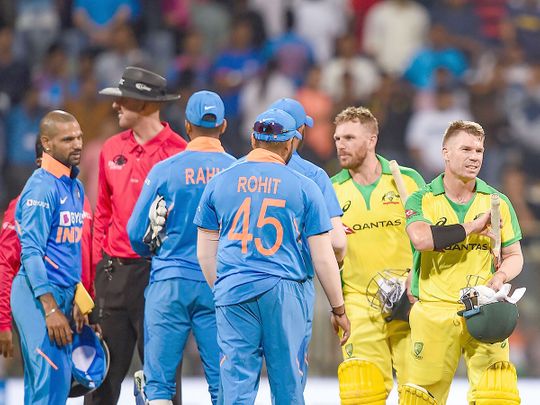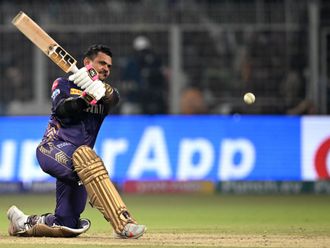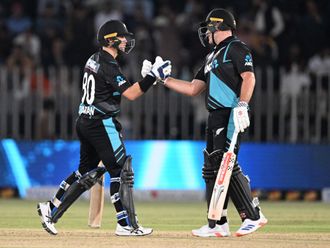
Dubai: India are ranked No. 2 in the International Cricket Council’s One Day International list and when that team lose by 10 wickets, then it is a serious matter.
The huge defeat is indeed not a good start for the team, especially in the first match of the new year. The fact that India crashed to such a big defeat after impressive victories over below-par West Indies and Sri Lankan teams reveal that the India cricketers will have to wipe away their complacency immediately. Their present opponents Australia and New Zealand, whom they will take on after the current series, are tough and hence they will have to give their best to remain among the top two.
The fact that Australia — who are ranked fourth by the ICC — could bowl out India for 255 on their home turf is impressive but then for them to go on to win without losing one wicket with centuries from David Warner and skipper Aaron Finch is remarkable.
India have to view this defeat with utmost seriousness because the last time India lost by 10 wickets at home was 15 years ago when South Africa thrashed them in Kolkata. To receive their fifth 10-wicket defeat, especially with such a formidable team, is a matter of concern. It is the second time in the history of cricket that such a score has been chased and won without losing a wicket. South Africa had chased Bangladesh’s score of 279 and won by 10 wickets in 2017 and is the highest 10-wicket win.
India had crashed to 10-wicket defeats before against New Zealand in 1981 at Melbourne, West Indies at Bridgetown in 1997, South Africa in 2000 at Sharjah and again to South Africa in 2005 at Kolkata. The highest number of balls left in a 10-wicket defeat was when South Africa defeated India at Sharjah with 124 balls remaining. On Tuesday in Mumbai, Australia won with 74 balls to spare.
India’s strike bowlers such as Mohammad Shami and Jasprit Bumrah being hit for 50 runs in their seven overs is not a good start for both of them. Their failure has resulted in Warner and Finch recording the highest-ever partnership for any wicket against India. It bettered Australians George Bailey and Steve Smith’s 242 for the third wicket against India in 2016 at Perth. In 2000 South Africa’s Herschelle Gibbs and Gary Kirsten had posted a 235-run partnership for the first wicket at Kochi.
Indian bowlers should also be aware that this is the first time an opponent’s openers have both scored hundreds in a chase against them.












